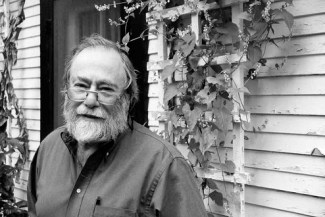As many of us return home to celebrate family and gratitude according to our cultural traditions, Toni Morrison’s essay “A Foreigner’s Home” poses a fascinating question. “To what do we pay greatest allegiance?,” she asks. “Family, language group, country, gender? Religion, race? And if none of these matter, are we urbane, cosmopolitan, or simply lonely?”

Toni Morrison (Photo by Deborah Feingold/Corbis via Getty Images)
The Foreigner’s Home
by Toni Morrison
EXCLUDING THE HEIGHT of the slave trade in the nineteenth century, the mass movement of peoples in the latter half of the twentieth century and the beginning of the twenty-first is greater now than it has ever been. It is a movement of workers, intellectuals, refugees, armies crossing oceans, continents, immigrants through custom offices and hidden routes, speaking multiple languages of trade, of political intervention, of persecution, exile, violence, and poverty. There is little doubt that the redistribution (voluntary or involuntary) of people all over the globe tops the agenda of the state, the boardrooms, the neighbourhoods, the street. Political maneuvers to control this movement are not limited to monitoring the dispossessed. While much of this exodus can be described as the journey of the colonised to the seat of the colonisers (slaves, as it were, abandoning the plantation for the planters’ home), and while more of it is the flight of war refugees, the relocation and transplantation of the management and diplomatic class to globalisation’s outposts, as well as the deployment of fresh military units and bases, feature prominently in legislative attempts to control the constant flow of people.

 Veterans of the Seventies
Veterans of the Seventies
You must be logged in to post a comment.